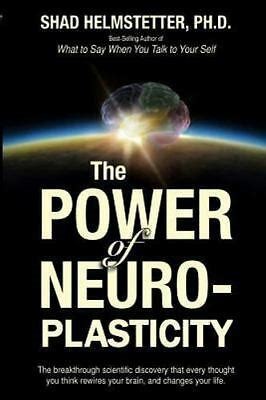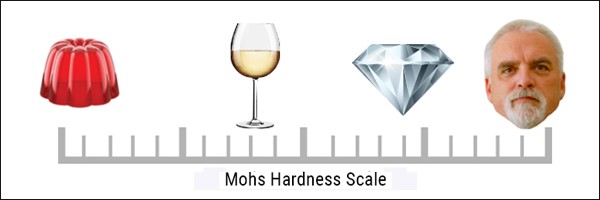I’ve Changed My Mind – I’ve Changed My Game
This week is another twofer.

I’ve Changed My Mind
For those of you who know me, that title is a radical statement. If you research the Mohs scale of mineral hardness, they show my head as an example of near-impenetrable density. In fact, I’m relatively sure the last time I changed my mind was when the George H. W. Bush went back on his “Read my lips” promise in 1988.
A few weeks ago, I was having a conversation with my friend, Dave Sykes. He’s always good for challenging poorly founded principles, and since we both suffer from low blood pressure, we decided to have a conversation about the border wall. Now, those of you who meet the qualifications of the first paragraph, also know that I have strong feelings about the border wall – namely that it’s too low…and poorly armed…and lacks a mine field. (Don’t judge me if you slept behind a locked door last night.)
Apart from the importation of drugs, contraband, and criminals, Dave and I were discussing the massive influx of low-skilled Central Americans. Admittedly, I’ve always contended that they pose an undue burden for the taxpayers. Dave asked a simple question, “When was the last time you saw a Mexican panhandler?” And darned if he wasn’t right! Even thinking all the way back to my early experiences with homeless panhandlers, in Austin during the 1970’s, I’ve never encountered an Hispanic panhandler.
Conversely, I’ve been the sole English speaker at the local post office on Friday afternoon when every lawncare worker and dishwasher in town was sending postal money orders back to their families in Central America. I even asked the fellow in line next to me one Friday how he managed to send money home. His explanation, in broken English, was that he shared a two-bedroom house with fourteen other men, some of whom worked nights, freeing up bed space for the day workers.
My pal, Dave wasn’t finished. He added the observation that I’d spent megamoney raising my kids for twenty years each before they became self-supporting. Tangentally, the bottom ten percent of our economic strata is not fixed. People move into it and then continually move up economically, in a lot less time than I spent raising responsible kids. Add to that, the fact that middle-class Americans are having fewer kids, and we seriously need an influx of committed beginning capitalists.
So, while I still favor of a border wall to stifle illegal imports, I’m now in favor of a lot more gates to let in any honest workers willing to join our economic system. Eventually, they’re going to be the folks who can afford your services and mine as well.
I’ve Changed My Game
Asthenopia [as-thuh-noh-pee-uh] noun: fatigue or tiring of the eye muscles, usually characterized by discomfort, dimness of vision, and headache, caused by overuse of the ocular muscles (rolling of the eyes). If you’d like to witness a pristine manifestation of this malady, just try to encounter Shon Cass, Russell Duckworth, Erika Herman, Paul Mayer, or Perry Thompson after they read the next sentence.
“The Power of Neuroplasticity” by Shad Helmstetter, PhD, is one of the best books I’ve ever read.
The reason behind my friends’ potential dramatics lies with the modest number of previous books I’ve made a similar claim about (73 to be exact, in case you’re experiencing the “O” phase of your OCD). In my defense. Those books were, at the time of the initial claims, the latest (and best) books I’d read to date. I originally read Helmstetter’s book (for the first time) at least seven or eight books ago and I’ve reread it four more times since then.
The gist of the book – assuming you’re one of the two people in North America that I haven’t described it to yet – is that our brains never quit growing until five minutes after we take our last breath. Additionally, like the rest of our body, they respond equally to exercise or inactivity. He discusses at-length, how various inputs cause our physical brains to react. At the end of his book, the author provides some excellent suggestions for rejuvenating and expanding our brains.
A week ago, I was discussing this with my nephew, Greg Floyd, a fellow who not only routinely demonstrates a propensity for analyzing complex issues, but who has started a successful company, manufacturing and marketing physical solutions to real-world problems he’s encountered. We were specifically talking about the power that experiences have for embedding themselves in our brains and influencing everything that follows – even seemingly unrelated events far in the future.
I related to Greg how a year ago, two good doctors had agreed on one bad diagnosis and informed me that I had only about eighteen months of runway left ahead of me. Moreover, they were not overly optimistic about any treatment options. That was, indeed, an eye opener that caused me to rethink a lot of my priorities. It also made me seriously depressed. In between updating wills, making sure someone could continue to service my clients, and performing all the mundane tasks of daily life, I started playing a game on my phone during my downtime.
Playing the game was mostly to keep myself too busy to dwell on the future. The game involves connecting pairs of identically colored dots with a line but never allowing the different colored lines to cross. It’s rudimentary when there are only six pairs of dots, but higher levels of the game include as many as 32 pairs of dots. I was dedicated to conquering that stupid game before my 18-month window ran out. Consequently, I found myself playing it every idle moment – between snooze buttons on my alarm every morning, waiting in clients’ lobbies, and at red lights while driving (yeah, I was that person you honked at).
Besides all the books I read last year, two great things happened – well, one great thing and one reasonably positive thing. The great thing was that an even better doctor discovered the earlier doctors were completely wrong and that I did not have stage four lung cancer. The reasonably good thing was that I finally conquered the dot game by figuring out the underlying principles.
Back to my conversation with Greg: I related to him that even though I had conquered the dot game, I sometimes found myself completely depressed while playing it. We both agreed I was tapping into signals that told my brain I was back in medical-crisis mode. Greg’s adamant advice was, “Uncle Guy, get that damn game off your phone!” He also gave me the encouragement I needed to jump back into playing chess – something I haven’t tried since1964.
As it turns out, one of the recommendations Shad Helmstetter makes for reinvigorating our brains is taking up chess. I was amazed to find that during the very first chess game I played, I vividly remembered things that happened to me in fourth grade (1964). It’s astounding that our brains have so many dormant neurons and that we can access that neural capacity by simply changing our game.
 Don’t take my word for any of this. Read the book and try the exercises. Then, let’s talk, maybe over a game of chess, assuming your game is as unrefined as mine. I’ll provide the coffee.
Don’t take my word for any of this. Read the book and try the exercises. Then, let’s talk, maybe over a game of chess, assuming your game is as unrefined as mine. I’ll provide the coffee.
“When I was a boy of 14, my father was so ignorant, I could hardly stand to have him around. But when I got to be 21, I was astonished at how much the old man had learned.”
― Mark Twain

Did someone forward this newsletter to you after reading it themselves? Don’t settle for that!
CLICK HERE
to get a fresh, unused copy of this newsletter sent directly to you every Sunday morning. If you decide it stinks, you can always unsubscribe.
The Power of Neuroplasticity
— Shad Helmstetter, PhD
What? Did you think I was going to write half of today’s story about this book and not recommend it again just because I’ve recommended it three times already? If you’d just read the darn thing, I could quit recommending it. Imagine if someone like Helmstetter got together for lunch with someone like Francis Collins and discussed the implications of neuroplasticity on the study of genetics.

The Language of God
— Francis Collins
So, call me schizophrenic for fluidly bouncing from subject to subject but that last recommendation reminded me of another great researcher I’ve recommended before. Collins is a supremely articulate communicator when it comes to research on the Human Genome. In fact, it’s just about time for him to come out with another book and you can be sure I’ll recommend it. But read this one first so you’ll have a good foundation for understanding his next installment! .














